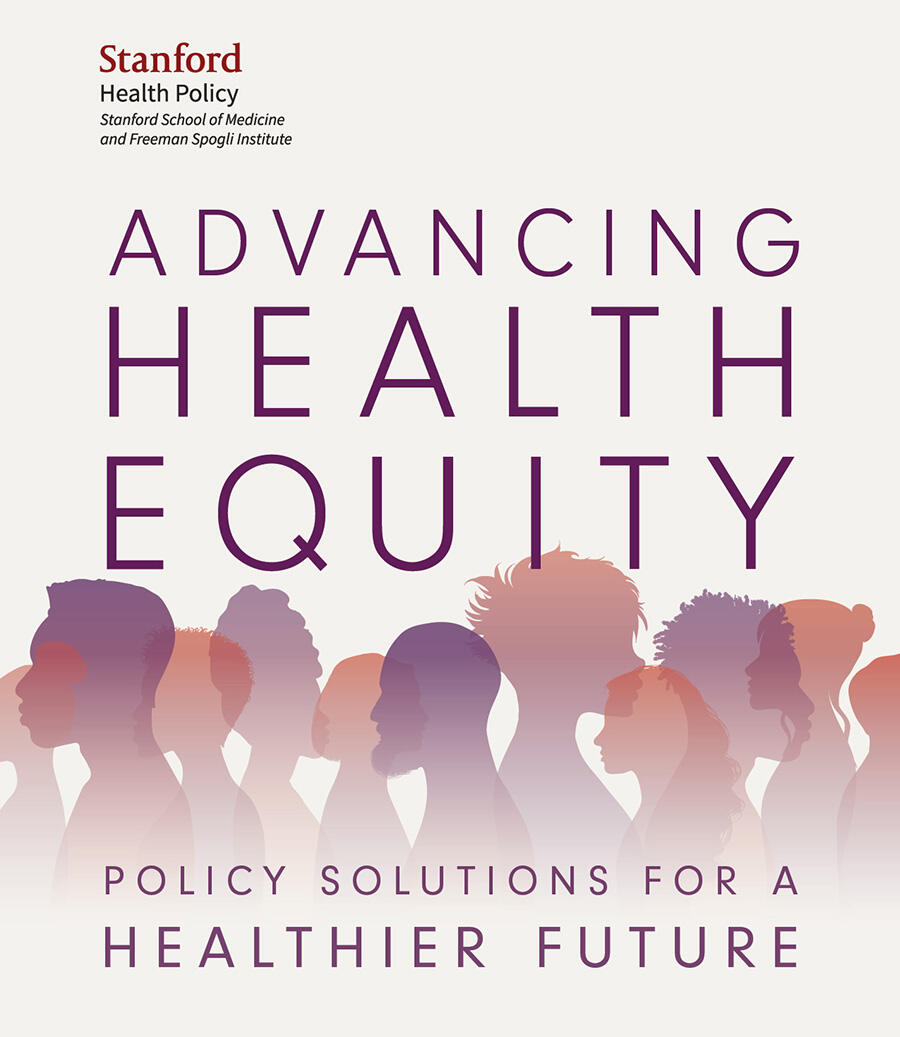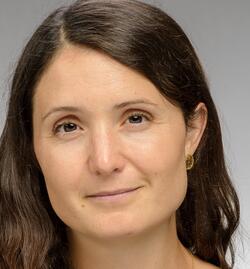Mofeed Digest (June 2022)
The following digest summarizes the most important scholarly and policy publications, reports, and articles covering the impact of the COVID-19 pandemic on the politics, economies, and societies of the Arab world. Mofeed Digest is produced by Mofeed Project Coordinator Serage Amatory.
[MENA | Algeria | Bahrain | Djibouti | Egypt| Iraq| Jordan| Kuwait| Lebanon| Libya| Morocco| Oman| Palestine| Qatar| Saudi Arabia| Somalia| Sudan| Syria| Tunisia| UAE| Yemen]
MENA
[Back to Top]
Arab States: Overcoming the Fragilities of Governance Systems for Sustainable Recovery
UNDP, Date Unspecified
This article assesses the fragility of Arab government responses to the COVID-19 pandemic and provides policy recommendations. It discusses how government trust and the perception of the social contract will change due to the citizen-government interaction during the pandemic.
COVID-19 in the MENA: An Exploration of Gender Sensitive State Responses
Middle East Political Science, Date Unspecified
This article describes how women in the formal sector of MENA economies have been impacted by the COVID-19 pandemic. Authors focus on 3 MENA countries and explore the gendered impacts of the pandemic.
COVID-19 Responses in the Middle East and North Africa in Global Perspective
Middle East Political Science, Date Unspecified
This article studies the nature of the government response to the COVID-19 pandemic in the Middle East and North Africa (MENA), exploring both within-region diversity and between-region variation. It concludes that while the MENA region as a whole is broadly similar to other parts of the world in its COVID response, there are substantial within-region differences in terms of how COVID policies were implemented and to what extent residents were affected by the pandemic and adopted public health behaviors.
Does COVID-19 Pandemic Spur Digital Business Transformation in the MENA Region? Evidence from Firm Level Data
Economic Research Forum, June 2022
This working paper analyzes how the outbreak of COVID-19 in the MENA region affected the accelerating digital transformation in business firms. The results demonstrate a strong association between the pandemic outbreak and digitization. They also show that the firms operating in the service sector were more likely to adopt digital solutions.
Presentation, Management, and Outcome of COVID-19 among Patients with Cancer in the Middle East and North Africa (MENA) region.
Journal of Clinical Oncology, 2 June 2022
This article captures data on 1345 patients with cancer to assess SARS-COV-2 infection presentations, diagnosis, treatment, complications, and outcomes in 12 centers in 8 Mena region countries.
Economic and Psychosocial Effects of the COVID-19 Pandemic on the Nations of the GCC
Global Business and Economics Review, 17 June 2022
This article examines the impact of the COVID-19 pandemic in GCC countries, especially on the economic and psychosocial level. The article investigates the impact of government support on mitigating the psychological and psychosocial impacts of the pandemic on citizens.
Algeria
[Back to Top]
Impact of COVID-19 Crisis on Energy Consumption and Socio-Spatial Behavior of the Residential Sector in Extreme Climates. Case study Southwest of Algeria
TECHNIUM, 9 June 2022
This article examines the immediate and long-term impact of COVID-19 on various forms of energy consumption during confinement in Algeria. The authors focus on the impact of COVID 19 on the energy consumption of electricity, gas, and water in the residential sector.
The Impact of the COVID-19 Related School Closure on the Mental Health and Well-Being of Children with SEN and Their Parents in Algeria
International Journal of Disability, Development and Education, 23 June 2022
This study studies and analyzes the experience of twenty-three parents and five children with special educational needs during complete lockdown and limited access to school support in Algeria.
Bahrain
[Back to Top]
Post-Vaccination Outcomes in Association with Four COVID-19 Vaccines in the Kingdom of Bahrain
Scientific Reports, 2 June 2022
This study examines COVID-19 related outcomes derived from Bahraini national database where 4 vaccines were deployed, comparing the 4 vaccines through post-vaccination outcomes.
Students’ Perception Regarding E-learning During COVID-19 at Bahrain Polytechnic
Institute of Electrical and Electronics Engineers, 6 June 2022
This article presents the findings of a descriptive cross-sectional study conducted at Bahrain Polytechnic to assess students' perspectives towards e-learning during the COVID-19 pandemic.
Bahrain Ranks First in Post-Pandemic Tourism Recovery Report
National News, 15 June 2022
According to money.co.uk study, Bahrain has been given the highest ranking in tourism recovery from the COVID-19 pandemic, at a 95% rate. This ranking indicated that the Gulf nation's 2021 tourist numbers bounced almost all the way back to the 2019 level of 3.8 million.
Djibouti
[Back to Top]
Epidemiology of the First and Second Waves of COVID-19 Pandemic in Djibouti and the Vaccination Strategy Developed for the Response
BMJ Public Health, June 2022
This study examines the epidemiology of the first two covid-19 waves in Djibouti, highlighting mishaps in the National Plan for Introduction and Deployment for COVID-19 vaccines.
Assessing the Effectiveness of the Djiboutian Government during the COVID-19: Focusing on the Djiboutian Perspective
FigShare, 30 June 2022
This study assesses the Djiboutian government’s effectiveness in combating COVID-19 through studying different indicators like citizen trust in government, government responsiveness and leadership, and COVID-19 information access and accuracy. Results conveyed a strong link between responsiveness and effectiveness.
Egypt
[Back to Top]
The Impact of Job Stress on Employee’s Performance at one of Private Banks in Egypt during COVID-19 Pandemic
International Business Research, Date Unspecified
This article investigates the perception of employees of one of the private banks in Egypt and their performance in the presence of job stress in the uncertain period of the coronavirus pandemic.
Impact of COVID-19 Pandemic on the Neurosurgical Practice in Egypt
Egyptian Journal of Neurosurgery, 7 June 2022
This article examines the impact of lockdown and restrictive measures adopted during the COVID-19 pandemic on neurosurgical cases at two university hospitals in Egypt. Results show that the number of cases has dropped by 38%.
Exenterate or Not: A Simple Proposed Management Algorithm for Mucormycosis During the Era of COVID-19 in a Tertiary Eye Care Center in Egypt
Clinical Ophthalmology, 11 June 2022
This article studies available data of 30 Egyptian patients with post COVID-19 orbital mucormycosis to construct a simple management algorithm for posed cases.
Egypt Loses $23 Billion from COVID-19, Ukraine Conflict
Egyptian Streets, 21 June 2022
Egypt's Minister of Finance declared during his proposed budget speech that the country had lost 440 EGP, about 23.4 billion dollars due to the Russian-Ukrainian war and the COVID-19 pandemic over the span of the last two years.
Recovering from COVID-19 Learning Losses
UNICEF, 23 June 2022
This UNICEF article delineates the various challenges that the pandemic has posed for children and their learning in Egypt. The article focuses on marginalized children of color or refugee status and recognizes that despite the progress achieved in the education sector in Egypt, marginalized children are still far behind expectations for their age in literacy. [ARABIC]
Acceptance Rate of COVID-19 Vaccination and Its Predictors in Egypt: An Online Survey
The Journal of Infection in Developing Countries, 30 June 2022
This article presents the findings of a self-administered study conducted on random participants from six different Egyptian governorates to assess the acceptance rate of COVID-19 vaccination among the Egyptian adult population.
Acceptance of COVID-19 Vaccination among Maintenance Hemodialysis Patients: an Egyptian Survey Study
Tropical Medicine and Health, 30 June 2022
This article presents a study conducted in 2 Maintenance Hemodialysis centers in Egypt to investigate the level of vaccine acceptance among Egyptian patients with MHD.
Iraq
[Back to Top]
Acceptance of COVID-19 Vaccine Among Nursing Students of Mosul University, Iraq
Rawal Medical Journal, Date Unspecified
This article uses a quantitative cross-sectional study to assess the acceptance of COVID-19 vaccination among nursing students in Mosul city in Iraq.
The Relationship between COVID-19 Fear and Anxiety with the Quality of Life of Students in Sulaymaniyah, Iraq
Novelty in Clinical Medicine, June 2022
This article examines the link between the fear and anxiety students experience during the pandemic with online learning, and their quality of life. According to intention to be vaccinated, the patients were divided into vaccine acceptant (VA), hesitant (VH), and resistant (VR) groups who comprised 58.3%, 26.5%, and 15.2%, respectively.
Misdiagnosis of COVID-19 Infection before Molecular Confirmation in Sulaimaniyah City, Iraq
European Journal of Medical Research, 3 June 2022
This article utilizes a detailed questionnaire to assess the misdiagnosis and mismanagement of COVID-19 cases in Northern Iraq, Kurdistan region. Regarding the false diagnosis of cases, 92% were made by non-physician healthcare workers, and only 8% were made by physicians.
The Role of Influenza Vaccination in the COVID-19 Infection: Impact on Incidence and Severity in Iraq
Journal of Applied Pharmaceutical Science, 21 June 2022
This article investigates the extent to which influenza vaccinations can mitigate the severity and decrease the frequency of incidence of COVID-19 infections in Iraq.
Predictors of Mental Health Symptomatology among Kurdish Patients Who Recovered from COVID-19 in Iraq
Discover Psychology, 27 June 2022
This article seeks to determine the mental health symptomatology and its associated factors among Kurdish Iraqis who recovered from COVID-19. It was found that 31.6% of the participating recovered patients with COVID-19 met the diagnostic criteria for post-traumatic stress disorder (PTSD), and 21.05% were classified with probable depression.
Menstrual Changes Following COVID-19 Infection: A Cross-Sectional Study from Jordan and Iraq
Plos One, 29 June 2022
This study aimed to investigate and to evaluate menstrual changes in females following COVID-19 infection, and to evaluate female perception about the effect of COVID-19 on their menstrual cycles. Authors conducted the study on 483 women from Jordan and Iraq.
Postmortem Lung Biopsy for COVID-19 Patients in Iraq
Research Square, 30 June 2022
This article studies the pathophysiological changes that happen to lung tissues in COVID-19 affected individuals and to accurately specify the cause(s) of death. Authors utilized a case series of post-mortem lung histopathology examinations of deceased COVID-19 positive patients in Iraq.
Jordan
[Back to Top]
User Experience Assessment of a COVID-19 Tracking Mobile Application (AMAN) in Jordan
Indonesian Journal of Electrical Engineering and Computer Science, Date Unspecified
This article examines the user experience of a COVID-19 tracking application in Jordan by getting feedback from users and identifying UX (user experience) based on user interaction.
Short-Term Side Effects of COVID-19 Vaccines: A Cross-Sectional Study in Jordan
Human Vaccines and Immunotherapeutics, 27 June 2022
This article presents the findings of a cross-sectional study of the short-term side effects of the COVID-19 vaccine to clarify the expected outcome of getting vaccinated and reduce vaccine hesitancy.
Menstrual Changes Following COVID-19 Infection: A Cross-Sectional Study from Jordan and Iraq
Plos One, 29 June 2022
This study aimed to investigate and to evaluate menstrual changes in females following COVID-19 infection, and to evaluate female perception about the effect of COVID-19 on their menstrual cycles. Authors conducted the study on 483 women from Jordan and Iraq.
Exploring the Role of Superspreading Events in SARS-CoV-2 Outbreaks
medRxiv, 29 June 2022
This article presents a study that formulates a Markov chain model to investigate the influence of superspreading events on SARS-COV-2 outbreak dynamics.
Kuwait
[Back to Top]
The Effects of COVID-19 School Disruptions Will Last Decades
World Bank, 20 June 2022
This World Bank blog-post discusses the effects of the COVID-19 pandemic on schools and learning in Kuwait. It states the long-term life long losses to their earning, males being affected more tragically than females. [Arabic here]
Incidence of SARS-CoV-2 Reinfection in a Paediatric Cohort in Kuwait
BMJ Open, 28 June 2022
This article reports the findings of a population-level retrospective cohort study to describe the clinical characteristics and dynamics of SARS-COV-2 reinfection in children in Kuwait. Results show that reinfection is uncommon in children.
Pandemic Price Controls Experiment Goes Seriously Awry in Kuwait
Bloomberg, 29 June 2022
This Bloomberg article reports on the indiscriminate economic havoc that has risen in Kuwait two years after price control was applied to freeze food costs during the first wave of the COVID-19 outbreak.
Lebanon
[Back to Top]
Evaluating the Governance and Preparedness of the Lebanese Health System for the COVID-19 Pandemic: A Qualitative Study
BMJ Open, 1 June 2022
This article reports on a qualitative study held in Lebanon aiming to assess the capacity and governance of Lebanon's health system throughout the coronavirus pandemic. The health workforce showed high resilience despite the inadequate training and staff shortages.
Genomic Surveillance of SARS CoV2 in COVID-19 vaccinated healthcare workers in Lebanon
BioRxiv, 6 June 2022
This article reports on the findings of a national SARS-COV-2 genomic surveillance among healthcare workers in Lebanon.
Experience of Field Testing in Lebanon during the COVID-19 Pandemic, January to August 2021
BMJ Global Health, 7 June 2022
This article presents data related to COVID-19 cases after field testing in Lebanon. The article also reflects on challenges faced and lessons learned.
Risk Markers of COVID-19, a Study from South-Lebanon
MDPI, 27 June 2022
This article aims to assess the prevalence of SARS-CoV-2 among suspected COVID-19 patients in South Lebanon as well as the risk markers for COVID-19 associated with ABO blood group, Rhesus factor, and patient’s address during the past year.
Libya
[Back to Top]
Knowledge, Attitude, Perception and Psychological Status of Healthcare Workers During COVID-19 Outbreak in Libya: A Cross Sectional Study
Journal of Pure and Applied Microbiology, 1 June 2022
This article studies and evaluates levels of knowledge, attitude, perception, and psychological effects of the COVID-19 pandemic on Libyan citizens.
Morocco
[Back to Top]
Dataset to Explore Factors Affecting COVID-19 Vaccination Intention. Evidence from Morocco
Data in Brief, 9 June 2022
This article identifies the various factors that influenced Moroccan citizens to get the COVID-19 vaccine. The data were collected using an online questionnaire.
Depression and Eating Disorders among Health Care Professionals in Morocco during the COVID-19 Pandemic
Electronic Journal of General Medicine, 8 June 2022
This article reports on the findings of an online anonymous self-administered questionnaire that was conducted on Moroccan healthcare workers to screen for depression and eating disorders during the coronavirus pandemic.
Oman
[Back to Top]
Assessing COVID-19 Vaccine’s Acceptability Amongst Health Care Workers in Oman: A Cross-Sectional Study
Journal of Infection and Public Health, 16 June 2022
This article assesses the acceptability of COVID-19 vaccines among health care workers in Oman. A cross-sectional study using a self- administered questionnaire was conducted among the HCWs in December 2020.
Audit Fees under the COVID-19 Pandemic: Evidence from Oman
Journal of Accounting in Emerging Economies, 28 June 2022
This article reports on the findings of a study examining the effect of COVID-19 on audit fees after its huge impact on companies' financial statements in Oman.
Pulmonary Barotrauma in COVID-19 Patients: Experience From a Secondary Care Hospital in Oman
Cureus, 29 June 2022
This article discusses the findings of a retrospective study identifying patients with pulmonary barotrauma and recording their medical data at an Intensive Care Unit in Oman.
Palestine
[Back to Top]
COVID-19 Vaccine Uptake and Its Associated Factors among Palestinian Healthcare Workers: Expectations Beaten by Reality
Vaccine, 9 June 2022
This article presents a cross-sectional study conducted in Palestine to examine the level of vaccination among healthcare workers and its determinants. Key findings show that almost two thirds of Palestinian healthcare workers have already received their vaccine.
Health Consequences of University Employees Post COVID-19 Vaccination at Palestinian University
Research Square, 14 June 2022
This article examines health consequences of Palestinian university workers receiving their COVID-19 vaccination, aiming to decrease vaccination hesitancy and provide more adequate input on its side effects.
Vaccine Apartheid and Settler Colonial Sovereign Violence: From Palestine to the Colonial Global Economy
Distinktion Journal of Social Theory, 14 June 2022
This article adopts a decolonial lens to assess the distribution of the COVID-19 vaccine in Palestine and globally. It challenges the underlying premise being that the advanced, wealthy, and capable nation-states have endogenously earned the position of power and prosperity and that the world’s poor nation-states are posited as the recipients of charity from these rich states only after the latter have sufficiently inoculated themselves.
The Impact of the Corona Pandemic on the Performance of Palestinian Commercial Banks Listed on the Palestine Stock Exchange
Lecture Notes in Networks and Systems, 30 June 2022
This article studies a sample of 6 companies from the banking sector in Palestine to shed light on the Palestinian stock exchange before and during the COVID-19 pandemic.
Qatar
[Back to Top]
Predictive Ability of Factors in diagnosing COVID-19: Experiences from Qatar's Primary Care Settings
International Journal of Infectious Diseases, June 2022
This article aims to establish the predictive ability of demographic and clinical factors in diagnosing Coronavirus Disease 2019 (COVID-19) in Qatar's publicly funded primary care settings.
Duration of mRNA Vaccine Protection against SARS-CoV-2 Omicron BA.1 and BA.2 Subvariants in Qatar
Nature Communications, 2 June 2022
This article investigates the duration of protection of the Pfizer and Moderna vaccines after the second dose and after the third/booster dose, against symptomatic COVID-19 infections in Qatar.
Qatar: Challenges and Successes in COVID-19 Pandemic Response
Rand Blog, 9 June 2022
This article presents an overview of the Qatari experience in combating the coronavirus pandemic. It references Qatar's strict contact tracking and tracing policy, the launching of a vaccination campaign in December 2020, and media campaigns that promote awareness of the importance of taking preventive measures and getting the vaccine as important steps in the state’s pandemic response.
Qatar Airways Bounces Back from Pandemic with Record Revenues and Profits
Forbes, 16 June 2022
This Forbes article discusses the efforts, resilience and trajectory of Qatar Airways in emerging from the coronavirus pandemic. It references a sharp uptick in annual revenues to QR52.3 billion ($14.4 billion).
COVID-19 Vaccine Hesitancy and Acceptance among the Public in the Gulf Cooperation Council Countries: A Review of the Literature
Human Vaccines and Immunotherapeutics, 29 June 2022
This article aims to provide an up-to-date evaluation of COVID-19 vaccine hesitancy among the public in the Gulf Cooperation Council countries.
Saudi Arabia
[Back to Top]
Factors Related to COVID-19 vaccine hesitancy in Saudi Arabia
Public Health in Practice, June 2022
This article presents the findings of a cross-sectional study aiming to assess the amount of vaccine hesitancy and its determinants in relation to various demographic, social, and personal characteristics among the Saudi population.
A Nationwide Survey to Assess COVID-19’s Impact on Health and Lifestyle in Saudi Arabia
European Review for Medical and Pharmacological Science, June 2022
This article aims to assess the COVID-19 related knowledge and its socio-demographic correlates in individuals from different parts of Saudi Arabia and to evaluate the health-related impact and lifestyle changes in the Saudi population because of the COVID-19 pandemic. It also determines the perceived importance of future preparedness among residents.
Characteristics of Mechanically Ventilated COVID-19 Patients in the Al-Ahsa Region of Saudi Arabia: A Retrospective Study with Survival Analysis
Annals of Saudi Medicine, 2 June 2022
This article seeks to identify the characteristics and risk factors for mortality in mechanically ventilated COVID-19 patients in Al-Ahsa region in Saudi Arabia.
Psychological Distress Reported by Healthcare Workers in Saudi Arabia during the COVID-19 Pandemic: A Cross-Sectional Study
PLOS ONE, 3 June 2022
This article estimates the prevalence and severity of psychological distress and studies predisposing risk factors among healthcare workers in KSA during the COVID-19 pandemic. Authors conducted a cross-sectional online survey of 1,985 HCWs from 6 hospitals across the country designated with caring for COVID-19 patients.
Side Effects and Perceptions of COVID-19 Vaccination in Saudi Arabia: A Cross-Sectional Study
Frontiers in Medicine, 7 June 2022
This article assesses the side effects and perceptions about COVID-19 vaccines among adults following vaccination in Saudi Arabia.
Factors Affecting Online Learning, Stress and Anxiety during the COVID-19 Pandemic in Saudi Arabia
International Journal of Human Rights in Healthcare, 10 June 2022
This article reports the findings of a study investigating the factors affecting online learning (OL) and stress and anxiety (SaA) during the COVID-19 pandemic in Saudi Arabia.
Voluntary Testing for COVID-19: Perceptions and Utilization among the Inhabitants of Saudi Arabia
Osong Public Health and Research Perspectives, 10 June 2022
This article investigates the perceptions and utilization of Voluntary Testing services for coronavirus disease 2019 (COVID-19) among the inhabitants of Saudi Arabia. In total, 3,510 adult participants from all provinces of Saudi Arabia were recruited via a national online survey.
Types of Variants Among Increased Cases of COVID-19 in the Western Region of Saudi Arabia in June 2021
Cureus, 16 June 2022
This article seeks to identify the types and distribution of the severe acute respiratory syndrome coronavirus 2 (SARS-CoV-2) variants causing cases of coronavirus disease 2019 (COVID-19) in the western region in Saudi Arabia in June 2021.
Assessment of Risk Factors Associated with COVID-19 Illness Outcomes in a Tertiary Hospital in Saudi Arabia
International Journal of General Medicine, 27 June 2022
This article reports the findings of a retrospective study that presents the demographic, epidemiological, clinical, laboratory, and imaging characteristics of patients at a tertiary hospital in Saudi Arabia and determines risk factors contributing to their COVID-19 outcome.
Somalia
[Back to Top]
Pumping Oxygen into Somalia’s Health System as Part of COVID-19 Response
World Bank, 6 June 2022
This article reviews the response of Somalia to the coronavirus pandemic in the light of the amalgamation of crises facing the country. The article acknowledges that unlike many countries, Somalia was dealing with multiple threats of crises: locusts, drought, flooding, COVID-19 in addition to the country’s fragility, after decades of war and political instability.
Sudan
[Back to Top]
Mental Health Status of High School Students in Khartoum State, Sudan During the COVID-19 Pandemic: A Cross-Sectional Study
BJPsych Open, 20 June 2022
This article aims to assess the mental health status of high school students in Khartoum State, to evaluate the participants’ adherence to COVID-19 preventive measures and to identify factors associated with commitment to COVID-19 guidelines and mental health status during the COVID-19 pandemic.
Syria
[Back to Top]
Syndromic Surveillance of Respiratory Infections during Protracted Conflict: Experiences from Northern Syria 2016-2021
International Journal of Infectious Diseases, June 2022
This article investigates the trends of Early Warning and Response Network (EWARN) reported ILI (influenza-like illness) and SARI (severe acute respiratory illness) in northern Syria between 2016 and 2021 and the potential impact of SARS-CoV-2.
Addressing the Impacts of COVID-19 on Refugee Health
PLOS Medicine, 27 June 2022
This article discusses the disparity in the experience of the pandemic between refugees and citizens and focuses on Syrian refugees. It acknowledges that refugees are often blamed by governments and members of the public for infectious disease epidemics and states that they may experience elevated risks of infectious diseases like COVID-19 through no fault of their own.
Tunisia
[Back to Top]
Students’ perceptions of distance education during a Covid-19 pandemic in Tunisia
International Journal of Educational and Psychological Studies, June 2022
This article uncovers the perceptions of university students regarding the use of distant learning tools and techniques during the spread of COVID-19, by exploring their experiences during containment.
COVID-19’s Impact on Tunisia
The Borgen Project, 1 June 2022
This article discusses the economic impact of the COVID-19 pandemic on Tunisia, exploring different indicators such as GDP, tourism, retail and agriculture.
COVID-19 and Gender-Based Violence: Pandemic Response and Impact on Civil Society in Tunisia
Project on Middle East Political Science, 16 June 2022
This working paper argues that CSOs made progress in combatting violence during the first year of the pandemic due to political openness, a culture of coalitions, and bipartisan support for eliminating violence against women. However, the President’s power grab and subsequent political instability led to a breakdown in coalition culture and a stifling of civil society, making it harder for feminist organizations to advocate for GBV protections. The paper draws on pre-pandemic ethnographic data and international and Tunisian news articles, polling data, statistics, and reporting during the pandemic.
UAE
[Back to Top]
Association between Quality of Sleep and Screen Time during the COVID-19 Outbreak among Adolescents in the United Arab Emirates
Journal of Sleep Research, 7 June 2022
This article aims to investigate the association between screen time on different electronic devices and sleep quality among adolescents in the United Arab Emirates during the COVID-19 pandemic.
Effectiveness of BBIBP-CorV Vaccine Against Severe Outcomes of COVID-19 in Abu Dhabi, United Arab Emirates
Nature Communications, 9 June 2022
This article aims to study the effectiveness of the inactivated BBIBP-CorV vaccine against severe COVID-19 outcomes (hospitalization, critical care admission and death due to COVID-19) and its long-term effectiveness in Abu Dhabi in the UAE.
Yemen
[Back to Top]
Adult Mortality before and during the COVID-19 Pandemic in Nine Communities of Yemen: A Key Informant Study
medRxiv, 21 June 2022
This article aims to estimate population mortality during the pre-pandemic and pandemic periods in nine purposively selected urban and rural communities of southern and central Yemen (Aden and Ta’iz governorates).






















